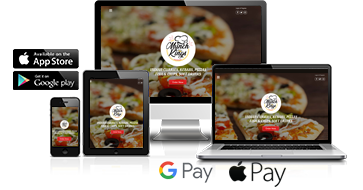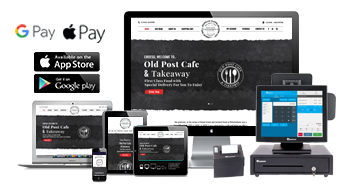Table of Contents

Introduction
Restaurant’s Charity partnerships enable to support social causes while simultaneously enhancing their brand reputation. Research indicates that 66% of consumers have a more positive image of companies that support charitable causes, suggesting clear incentives for businesses embarking on cause-marketing campaigns.
Successful partnerships depend on strategic alignment between a restaurant’s mission, target demographic, and social issues relevant to local communities or the industry at large.
The Rise of Cause Marketing
When executed authentically, charity collaborations can boost brand awareness, inspire customer loyalty and position restaurants as good corporate citizens. However, 91% of consumers expect companies to not only support causes but also take action to drive real social impact.
This means restaurants must move beyond superficial partnerships without meaningful follow-through. By leveraging core capabilities – such as donating a portion of sales, providing in-kind food donations or volunteering opportunities – restaurants can develop initiatives that align branding with community engagement.
Benefits of Charity Partnerships
Strategic charity partnerships offer restaurants compelling advantages, including:
Enhanced Brand Image and Reputation
- Demonstrates social responsibility and values-alignment
- Inspires customer trust and goodwill
- Positions restaurants as ethical, compassionate industry leaders
Increased Customer Loyalty and Engagement
- Draws new customers to the restaurant
- Boosts patronage from existing customers
- Inspires brand advocacy and positive word-of-mouth
Positive Community Impact
- Addresses pressing social needs via donations/volunteer initiatives
- Supports meaningful causes connected to target customers
- Enables restaurants to leverage capabilities for good
Tax Benefits and Positive Media Coverage
- Charity initiatives can provide applicable tax reductions
- Goodwill partnerships often receive press coverage
Clearly, purpose-driven charity collaborations make strategic sense both for branding aims and advancing social welfare.
Choosing Social Causes
Not all charities or causes align with a given restaurant’s focus, capabilities or customer base. Restaurants developing charity partnerships should focus on issues and organizations reflecting:
Alignment with Restaurant Values and Mission
- Coheres with company vision, aims and ethos
- Reaffirms commitment to specific issues
Relevance to Target Audience
- Appeals to and resonates with customer demographic
- Responds to local community needs and context
Assessing Impact and Scalability
- Donations/support directly help the organization
- Partnership has mechanisms to expand reach over time
Local vs National/Global Scope
- Local initiatives foster community connections
- Larger campaigns demonstrate values to broad customer base
Selecting charity partners requires balancing both business and social impact aims. The charity should fulfill the restaurant’s goals for driving brand reputation or engaging specific customer segments while also addressing societal needs.
Types of Charity Partnerships
Once a restaurant identifies a strategic charity alignment, many options exist for structuring collaborations:
- Monetary Donations: Restaurants pledge portion of sales to charity partners
- In-Kind Donations: Restaurants donate food, catering or services
- Cause-Related Marketing: Promotions raise awareness and donations
- Volunteer Initiatives: Company/employees volunteer for causes
Effective partnerships likely integrate multiple options for engagement over a sustained period. This demonstrates an embedded commitment beyond one-off donations.
Challenges and Considerations
While charity partnerships offer positive possibilities, restaurants must also beware of potential pitfalls:
Resource Allocation and Budgeting
Assigning personnel time, donations has cost implications
Set realistic budgets aligned with capabilities/aims
Maintaining Transparency and Accountability
Clearly communicate initiatives and impact to customers
Honor commitments made to charity partners
Avoiding ‘Cause-Washing’
Beware partnerships aimed more at PR than social change
Ensure charitable work is meaningful, not simpy promotional
Managing Partner Relationships
Align expectations for how collaboration will work
Build strong communication channels with charity leaders
By considering these challenges upfront, restaurants can mitigate risks and focus partnerships on shared objectives.
Strategies for Successful Implementation
Truly impactful charity collaborations require more than a one-time donation. To maximize benefits, restaurants should:
Set Clear Goals and Metrics
Articulate aims for brand lift, customer engagement, social impact
Establish quantifiable KPIs for tracking performance
Build Strong Charity Relationships
Design initiatives collaboratively with partners
Maintain open/honest dialogue about what’s working
Integrate Charity Into Marketing
Spotlight partnership via social media, PR, in-store branding
Make charity central to external messaging
Engage Employees Across Initiatives
Encourage staff to participate in volunteering events
Reward employee charity achievements
This integrated approach embeds charity as an authentic element of the restaurant’s culture and branding platform.
Measuring Impact and ROI
To gauge effectiveness, restaurants should track both business and social return on charity initiatives:
Metric Potential Indicators
- Donations Funds raised, meals donated, volunteer hours
- Brand Sentiment % uptick in awareness/positive perceptions
- Customer Behavior Increased new/repeat purchase rates
- Feedback Surveys of staff, partners and community
Analyzing metrics in these areas will indicate whether charity collaborations are succeeding – while also identifying areas for adjustment. Partnerships are an investment which require evidence of tangible returns, both for restaurants and society.
Conclusion
In summary, charity partnerships enable restaurants align branding with social causes – while also making meaningful community impact. By selecting resonant issues and charity allies, restaurants can enhance brand reputation, foster customer goodwill and demonstrate ethical leadership.
Partnerships should reflect commitment across all elements of restaurant operations – from marketing initiatives to donation drives to staff volunteering. With strategic implementation rooted in clear goals and measurable returns, charity collaborations provide restaurants an opportunity to merge business success with social change. The potential benefits are tremendous, for restaurant brands along with the social welfare of local communities and causes connected to company values. The time is now for restaurants to harness their reach and capabilities to enact positive societal change.
Strategic charity partnerships enable takeaway ordering apps align business success with social impact – benefiting brand, community and employees.









